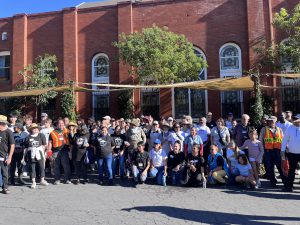Learn More
Museums
Metadata
Variable Definitions:
Museums: The number of museums in a given area
Source:
Google Maps API
Due to the Google Maps APIs Terms of Service, this dataset is not expected to be updated regularly.
Years Available:
2023
Methodology Note:
The original data comes at the point level. Our team spatial joined each point to 2020 Census Tracts based on Google Maps provided coordinates. Businesses are filtered based on having a “currently operational” status and being tagged as a “museum” on Google Maps.
Why are these variables important to measure?
Museums bring a sense of cultural preservation and education to cities across the world. Museums allow people to think, learn, and become more inquisitive global citizens.
Oftentimes, access to museums can be free of charge and serve as community spaces for families and individuals who may not otherwise have the opportunity. In a time with a growing wealth gap, museums build a sense of community identity and serve as a third place for people of all backgrounds to come together. Due to the variety of artifacts, art, and information that museums bring, these educational hubs can bridge generational and cultural divides by exposing individuals to different walks of life. Furthermore, museums are integral in the effort to preserve history and honor those who have come before us. From an economic perspective, museums themselves also attract tourist revenue and can contribute to the economic revitalization of a community.
Related Data Stories

The Book Truck: Delivering Literacy in Southern California
Why Do Some People Read? For children in some communities, books and reading are omnipresent. Reading begins as amusement and entertainment and grows into a



